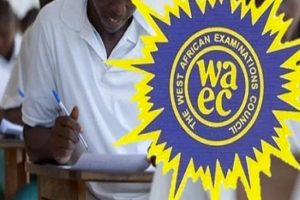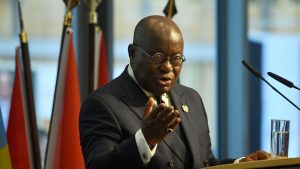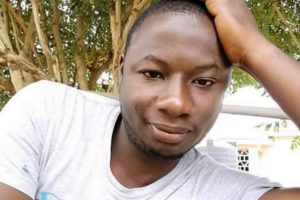The white former Minneapolis police officer convicted last month of the murder of the black man George Floyd has requested a new trial.
Derek Chauvin’s legal team have filed court documents alleging misconduct by both prosecutors and jurors.
Chauvin, who was captured on video kneeling on Mr Floyd’s neck for more than nine minutes, was found guilty of murder and manslaughter.
His lawyer says his client was deprived of a fair trial.
The rare verdict against a police officer was considered a milestone in the racial history of the US and was widely applauded by Americans. Chauvin faces up to 40 years in prison.
He will be sentenced next month.
What is Chauvin’s legal team arguing?
US media report that the request for a new trial was expected and is a common move following a conviction.
The New York Times quoted experts as saying it was unlikely that the jury’s decision would be overturned because of the evidence in the case.
In court documents Eric Nelson argues that the process was not impartial because of pre-trial publicity.
He writes that it was “so pervasive and so prejudicial” before and during the trial, that it amounted to a “structural defect in the proceedings”.
The motion also alleges that errors were made by the judge and that there was prosecutorial misconduct and witness intimidation.
What is the controversy about the juror?
Supporters of Chauvin have pointed to juror Brandon Mitchell, who was pictured last August at an event in Washington held on the 57th anniversary of the civil rights movement’s historic March on Washington.
The event included a Get Your Knee Off Our Necks protest at which speakers including Martin Luther King’s son demanded racial equality. Mr Mitchell was pictured wearing a T-shirt bearing the slogan “Get your knee off our necks” and “BLM”, referring to the Black Lives Matter movement.
Jurors in the Chauvin case were asked before the trial whether they or people they knew well had “participated in protests about police use of force or police brutality”.
Mr Mitchell – the only juror in the trial to give media interviews – says he answered no to that question.
He told the Minneapolis Star Tribune that he had attended the event to commemorate the civil rights movement and had not seen it as an anti-police brutality protest.
“The opportunity to be around thousands and thousands of black people, I just thought it was a good opportunity to be a part of something,” he said.
Before the trial, during questioning by Chauvin’s defence team, Mr Mitchell said that he saw Black Lives Matter as a statement that he supported.
How did the trial unfold?
The 12-member jury took less than a day to declare Chauvin guilty following a highly charged, three-week trial in which 45 witnesses took the stand and several hours of video footage were shown.
Several witnesses broke down in tears as they watched graphic footage of Mr Floyd’s death and described feeling “helpless” as events unfolded.
Expert witnesses on behalf of the state testified that Mr Floyd died from a lack of oxygen due to the manner of restraint employed by Chauvin and his colleagues.
Chauvin himself chose not to testify, invoking his right to not incriminate himself with his responses.
What happened to George Floyd?
The 46-year-old bought a pack of cigarettes at a convenience store in May 2020. A shop assistant believed he had used a counterfeit note and called the police after Mr Floyd refused to give the cigarettes back.
When police arrived, they ordered Mr Floyd out of his parked car and handcuffed him. A struggle ensued when officers tried to put a screaming Mr Floyd in their squad car. They wrestled him to the ground and pinned him under their weight.
Chauvin pressed his knee into the back of Mr Floyd’s neck for more than nine minutes.
As he was being restrained, Mr Floyd said more than 20 times that he could not breathe, pleading for his mother and begging “please, please, please”.
When the ambulance arrived, Mr Floyd was motionless. He was pronounced dead about an hour later.







